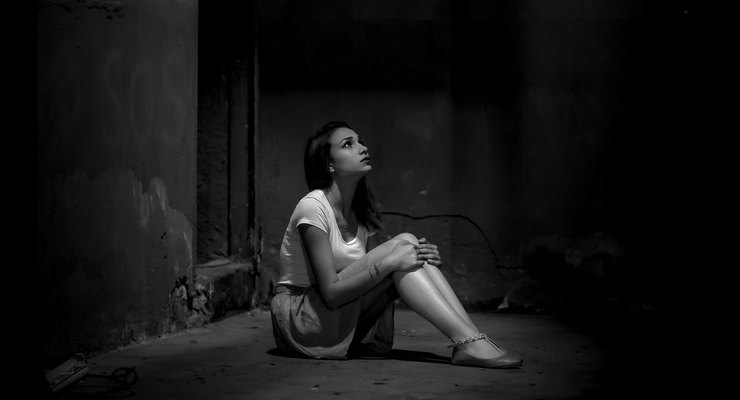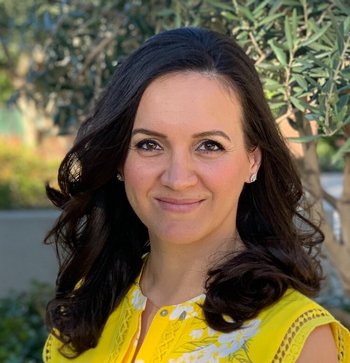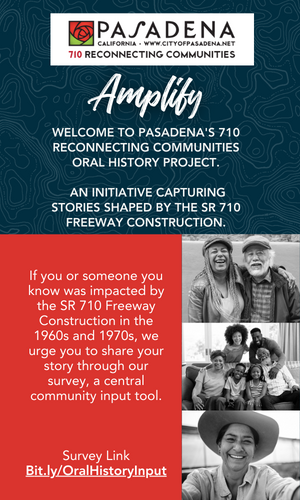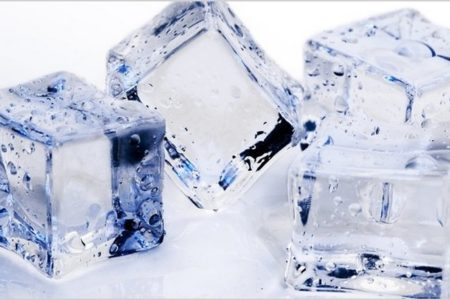
Photo by Emre Kuzu
There are as many causes of stress during this pandemic as there are people, said a Pasadena therapist Monday. And there is not a single person anywhere who has not had some type of breakdown from the stress, she added.
“I think the stresses that COVID-19 is causing are as varied as every single person is different in the world,” life coach Michelle Shahbazyan told Pasadena Now.
“A very strict lockdown like we have here in LA County is impacting every aspect of people’s lives and everyone’s life is different,” she said. “So whether it’s finances, or kids being schooled from home, or debt, or relationship strains that are getting worse, expectations that have mounted and overwhelmed people, it’s all these sorts of things.”
This litany of woe from someone who sees it every day is sobering, to be sure, but it’s not without some hope, however measured.

Michelle Shahbazyan, MS, MA
Shahbazyan noted, with some slight optimism, for example, that President Trump signed an executive order over the weekend, to continue extended unemployment benefits at a new rate of $400 a week, down from the expired $600 amount. (According to the Washington Post, however, White House National Economic Council Director Larry Kudlow said Tuesday that the Federal government would provide only $300, with no contributions from the state.)
Shahbazyan paints a troubling picture of the pandemic’s present and future, mixed with pragmatism and hard realities.
“The impact of unemployment on the finances, mixed with children being home for the foreseeable future, is a pressure that is crushing people’s souls,” said Shahbazyan pointedly.
“We started this whole process with, ‘It’s going to be two weeks to flatten the curve,’ to (being) indefinitely disconnected from civilization as we know it,” she continued. “And we’ve spent hundreds of thousands of years building this civilization, as we know it in the best country in the world. And now it’s all shut down and it’s just the eerie quietness of the streets, and the grocery stores and the lines.”
And then you add insult to injury with masks, she said, acknowledging that people are now fighting in public and getting into arguments over the issue, and coming home stressed out, or becoming too stressed out to leave the house at all.
“The impact of all of that on the human psyche is going to be a force that’s going to need to be reckoned with once this is all over, if it’s over anytime soon,” she posited.
Which then begs the much larger question: Is the Coronavirus pandemic more than humans were built to cope with?
Shahbazyan answered carefully, “I think it is, currently as it stands, with the indefiniteness of it. I think it’s more than anyone expected.”
While Shahbazyan is somewhat optimistic, she says, here in mid-pandemic with no realistic end in sight, “I don’t think people are coping well with it at all, by any stretch of the imagination, adding further, “I don’t think there is a single person who has not had some kind of a mental breakdown over this in some way, shape or form. And the more complex the person’s life is the more complex, the pain that they’re experiencing right now, because it’s affecting every part of a person’s life.”
And simple lives might mean less stress.
She offers, ironically, “The simpler your life is, if you’re just sitting home, and you were jobless before, your life might be better, right?
And conversely, as she explains, the more complex people’s lives are, the more they’re missing out on right now.
“The fact that basically a year has disappeared from human existence is what it feels like,” she explained. “It’s not just coping with it now. We’re going to be coping with this for months, if not years, to come, to all of what has happened.”
But she also stresses that however limited things may seem, however small the options might look, people should continue to seek out what makes them happy.
“Whatever you can do in your home, you should do, she offers. Whether it’s to listen to some good music, and just tune out for a little bit, or go for a walk, or watch some good TV. That’s the extent of what people can do.”
Shahbazyan also recommends treating yourself to something good every once in a while.
“Hopefully you can still afford to eat some good food, even if it’s at home or order out, if you budget for it. Maybe once every few weeks, just to have that little bit of enjoyment so with that slippery slope that everybody is essentially on, especially here in LA County, hopefully you can slow it down and create a bump here and there, so that you’re not just on this greasy slide going faster than you can handle, if you can slow that down a little bit.
“Once things pick up and we’re on our way back up,” she continued, “people can experience that, and find that they’ll have less work to do to bring themselves back up to where they’d like to be emotionally, mentally, and physically.”
And as there are things one can do to de-stress, there are just as many things, if not more, that we should not be doing these days, says Shahbazyan.
“Drugs and alcohol are the first thing that comes to mind,” she says, “because that is gonna make that slippery slope go a lot faster all the way down, and it’s going to be harder to climb back up.”
As she tells her clients, “Take two people. Put them in a room together long enough, there’s going to be conflict, but working through communication skills with the people that you live with, the people that you have to interact with frequently, working through communication skills and strengthening them is going to be a benefit that you will gain.
“So that when you’re on the other side of this,: she continued, “there’s something positive you have done for yourself. You spent quality time with your family and or friends, whether it’s digitally or in person, and you’ve created bonds that are deeper than they otherwise would have been.”
And while you’re at it, maybe walk away from your phone and social media for a while every day, says Shahbazyan.
“It’s very hard to do that,” she admits, “because everybody wants to stay informed, but you’re figuring out what your balance is, and how many minutes a day do you want to spend on that? Do things that are positive and productive for your life. The long stretches of that incoming information is such a heavy burden on the mind. It’s unbelievable how much that’s affecting people.”
As she explained, the added pressure on many to actually be stronger through the crisis can be overwhelming in itself. Tweets and memes and Instagram messages telling us to be stronger and come through a better person, may only aggravate a difficult situation.
“I think that that kind of pressure for something good to come out of this is really, really high at a time where people are actually really, really low,” said Shahbazyan.
As someone deep in the trenches of the emotional aspects of the pandemic, Shahbazyan has a dark but hopeful, viewpoint.
“Most people that were doing well before, are suffering a lot,” she says. “And I think the unfairness of that isn’t being spoken about enough. I don’t think there’s a lot of people who are doing great.
As she explained, “I think the vast majority of people are struggling quite a bit. It’s just a matter of swallowing it and having that grit and just getting through it and hoping you wake up tomorrow and things are different. I think that’s the mode of operation that most people are going with. And I think that I may be the only person that says that out loud.”
And she offers a gentle nudge for those who forget about themselves.
“I think, in general, people have a hard time with reminding themselves to do self-care and to be amazing and be happy and strong and communicate well.”
It’s time to remember that.
Michelle Shahbazyan may be contacted at 818-641-6127. Her website is at thelalifecoach.com








